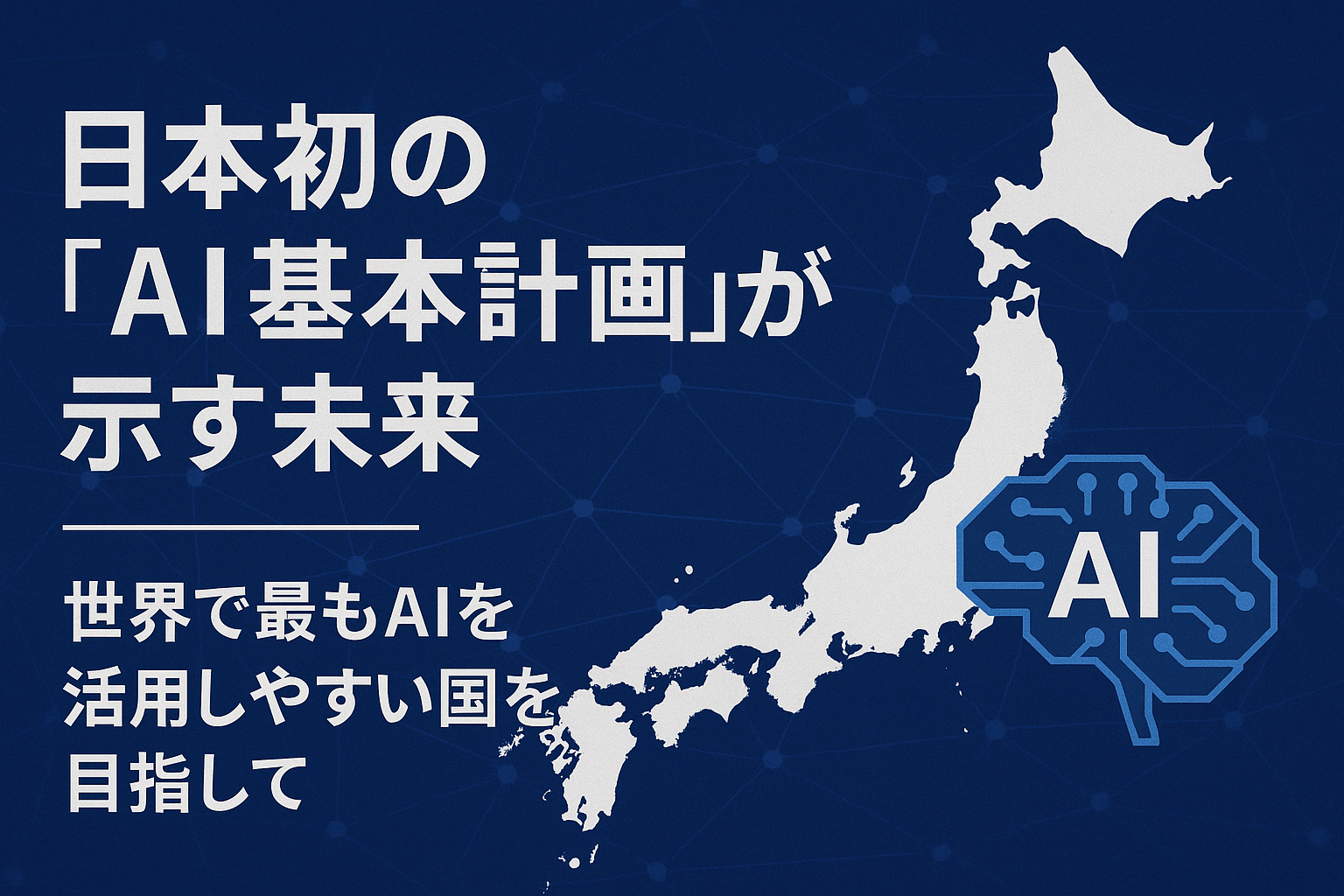Introduction
The outline of Japan’s first “Artificial Intelligence (AI) Basic Plan,” which the government aims to formulate, has been revealed. Led by the AI Strategy Headquarters chaired by Prime Minister Ishiba, preparations are underway to finalize the plan at a Cabinet meeting by the end of the year. The goal is to make Japan “the easiest country in the world for developing and utilizing AI.” The question is: can Japan catch up from behind and take the lead in the new AI era?
Four Basic Policies
The draft highlights the following four pillars:
- Accelerated Promotion of Utilization
Government agencies and municipalities will take the lead in introducing AI to improve operational efficiency. AI use will also expand into the defense sector.
- Strategic Strengthening of Development Capacity
Leveraging Japan’s strength in “high-quality data,” the plan aims to enhance domestic research and development infrastructure.
- Leadership in Governance
Japan will lead in creating international rules to address issues such as incorrect outputs, the spread of disinformation, and national security risks.
- Continuous Transformation Toward an AI Society
Institutional and social systems will be flexibly reformed to realize collaboration between AI and humans.
Japan’s Position — Behind but Catching Up
Japan’s AI utilization rate remains at only about 20% among individuals and around 50% among companies, lagging significantly behind Europe, the U.S., and China. However, Japan’s accumulated strength lies in “accurate and reliable data” in fields such as healthcare and manufacturing. Since data quality strongly influences AI accuracy, how Japan leverages this advantage will be a decisive factor.
Risk Management and International Rules
While AI offers convenience, it also carries risks such as the spread of misinformation and copyright infringement. The rise of generative AI, in particular, has made “protection and utilization of creative assets” a global issue. Japan’s stance of taking the initiative in shaping international norms deserves recognition.
Outlook and Challenges
The AI Basic Plan will likely serve as the “first step” in transforming Japanese society as a whole. However, without accompanying reforms in systems, educational investment, and human resource development, the plan risks remaining only on paper. Achieving both “usability” and “trustworthiness” will determine whether Japan can establish itself as a pioneering AI nation—something that depends not only on the government but also on proactive participation from industry and civil society.
Conclusion
“AI will not replace humans but will build a society where humans and AI collaborate.” This plan presents such a vision of the future. How Japan embraces this wave of transformation will ultimately depend on the choices each of us makes.

